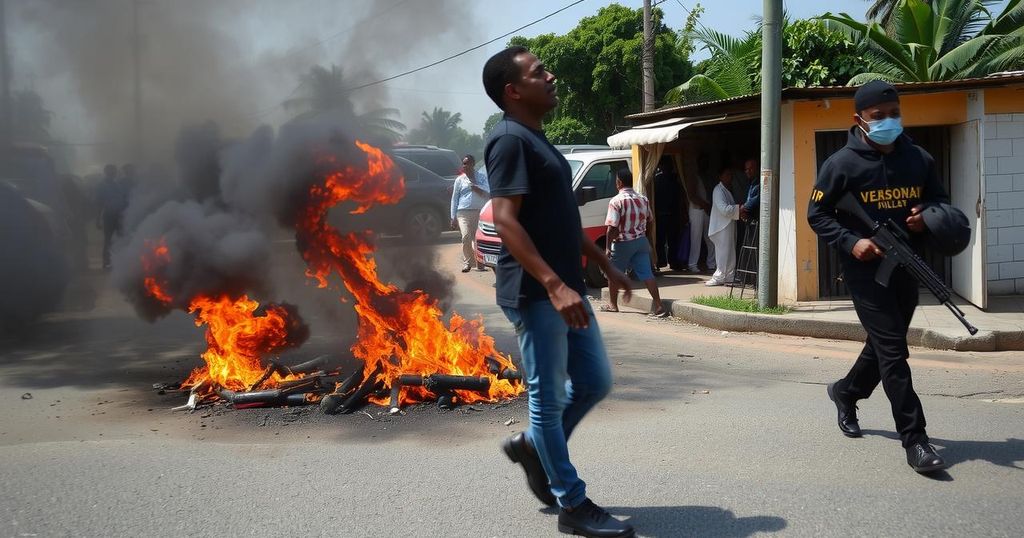Following the announcement of the presidential election results in Mozambique, 125 individuals have been killed in violent clashes spurred by opposition protests. The ruling Frelimo party’s confirmed victory has been met with significant unrest and allegations of electoral fraud, leading to arrests and a national state of emergency.
Violent unrest in Mozambique following the recent presidential election has resulted in the deaths of approximately 125 individuals over a span of three days, according to reports from the NGO Plataforma Decide. The clashes were instigated by opposition demonstrations against the election outcome, where the nation’s Supreme Court confirmed Daniel Chapo of the ruling Frelimo party as the victor with 65.17% of the votes, despite claims of electoral irregularities by international observers.
In response to the electoral announcement, widespread protests erupted, frequently escalating into confrontations with law enforcement. Buildings have been set ablaze and supermarkets looted, with initial reports indicating 21 fatalities within the first day alone. Additionally, during a mass jailbreak near Maputo, at least 33 inmates lost their lives in violent altercations with prison guards.
The NGO reports indicate that total fatalities related to violence since early October have risen to 252, with the capital and northern provinces, such as Nampula and Beira, being significantly affected. As of Thursday, over 4,000 arrests have been made since the onset of unrest, with 137 apprehended in the latest three-day period. Opposition figure Venancio Mondlane has claimed that the elections were marred by fraud, alleging that government forces are inciting violence to justify implementing a state of emergency.
The political landscape in Mozambique has been tense, particularly since the presidential elections held on October 9, 2023. The ruling Frelimo party, in power since the country’s independence in 1975, faced allegations of electoral misconduct following the confirmed victory of Daniel Chapo. Various factions within the opposition, notably led by exiled leader Venancio Mondlane, contend that systemic issues contributed to an unfair electoral process. The ensuing protests reflect deep-seated frustrations in the populace, especially regarding governance and civil rights.
In summary, the violent aftermath of Mozambique’s presidential elections underscores the critical tensions between the ruling party and opposition factions. With a significant death toll arising from the unrest and ongoing protests across major cities, the situation continues to pose significant challenges for public safety and governance. The call for accountability amidst claims of electoral fraud and state repression highlights the urgent need for dialogue and reform in Mozambique’s political framework.
Original Source: www.barrons.com






